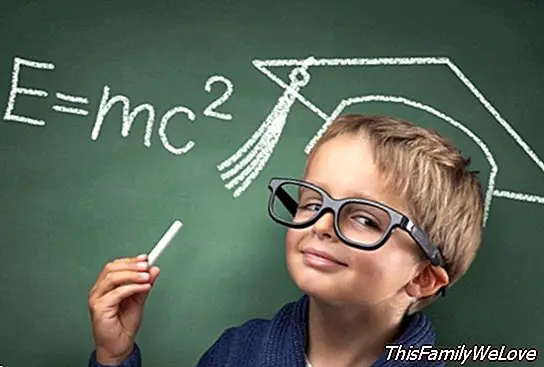Neuroscience and education: tricks to enhance learning

The human mind is a learning mind. Each new learning involves the creation of a new connection between neurons. Neuroscience gives us the knowledge of the functioning of the mind, while the education must use the knowledge of the neuroscience
Only in this way can we speak of an education adapted to the biology of people, of a learning driven by the knowledge of its mechanisms.
We can not nourish the minds of our children without knowing what are the mechanisms behind that mental nutrition. Knowing the biological basis of learning involves the ability to enhance it through the neuroscience and education with tricks to enhance learning.
Neuroscience: the functioning of the human mind
Neuroscience is the discipline that gives us the knowledge necessary to understand the ins and outs responsible for the functioning of the human mind. Millions of neurons are activated and connected in a complex network of synaptic connections, and in this way they interact giving rise to our disparate behaviors and learning.
Neuroscience provides us with valuable information about how our brain works. Thanks to their contributions we can know how the mind keeps information, processes and elaborates it to create a conscious concept. Thanks to neuroscience we can know the biological processes that underlie both behavior and learning.
It is essential that the educational process takes into account the functioning of the mind. Neuroscience serves education in that it provides the keys to how people perceive, interpret and elaborate information by building learning.
How our minds learn
The brain is made up of millions of nerve cells: neurons. These interact through the synaptic connections that allow to transmit and process information in a few seconds. Everything we learn requires a new connection. Each new connection is a new way of passing information, a new path of processing and interpretation.
That is why learning is not always easy, it involves a mental effort. It is easier to follow the already elaborated paths than to travel where we have never done before creating a new path. The more we learn and the more connections our neurons establish, the more agile our mind is, and we have a wider and richer vision of reality. Let's look at an analogy with a road network. With a single highway we can reach a destination. But with many highways and roads, even roads, we can reach many destinations and even reach it by different roads, maybe faster. We all know that creating a road network is not easy, it takes effort and time, but we understand that it is necessary.
How can we promote children's learning?
There is still a long way to go in advancing neuroscience. Even so, the current knowledge provided by this discipline allows us to decipher some basic factors for learning to occur because they favor and enhance the creation of new connections between neurons.
1. Emotion plays a crucial role in the creation of learning. The main mental processes responsible for learning: perception, attention, memory, etc. They are closely linked to emotion. The emotional state determines the functioning of the brain. Examples of this are: how can we easily remember a song that brings us pleasant memories, or when we are sad we have trouble concentrating. The emotional state of the child will determine the construction of learning. If the mood is positive, the mind is predisposed to create learning.
2. Attention is favored with the information structure. The brain pays more attention to that information that is presented through resources that allow it to visualize order and connections. The schemes, maps of contents, graphics, will favor learning, since they are techniques that capture your attention and prepare the brain for learning.
3. Learning is agile when it is related to previous knowledge. In these cases there is no connection from zero, we start from other connections, from one path to create others.
4. The creation of new connections and therefore learning are enhanced by the activity of existing connections. If we keep the mind active and agile it is easier to create new learning.
Tricks to facilitate the creation of learning.
Neuroscience allows us to know the biological substrates of learning and in this way allows us to enhance them.
1. Accompanies the learning of positive emotions. Pay attention to the climate of learning situations, try to provide a safe and positive climate.
2. Do not obtrude the emotional state of the child. Emotions influence the creation of learning, when the mood is negative is not the best time to learn.
3. Practice emotional education to endow it with a rich emotional intelligence. The ability to regulate their emotional states and be owners of them, will allow them to control their learning processes.
4. Use resources to present information in an attractive way to favor the mental functioning.
5. Associate learning with positive experiences of wellness.
Celia Rodríguez Ruiz. Clinical Health Psychologist, specialist in Child and Adolescent Psychology and Pedagogy. Director of Educa and Learn.
Author of the collection Stimulate the reading and writing processes




